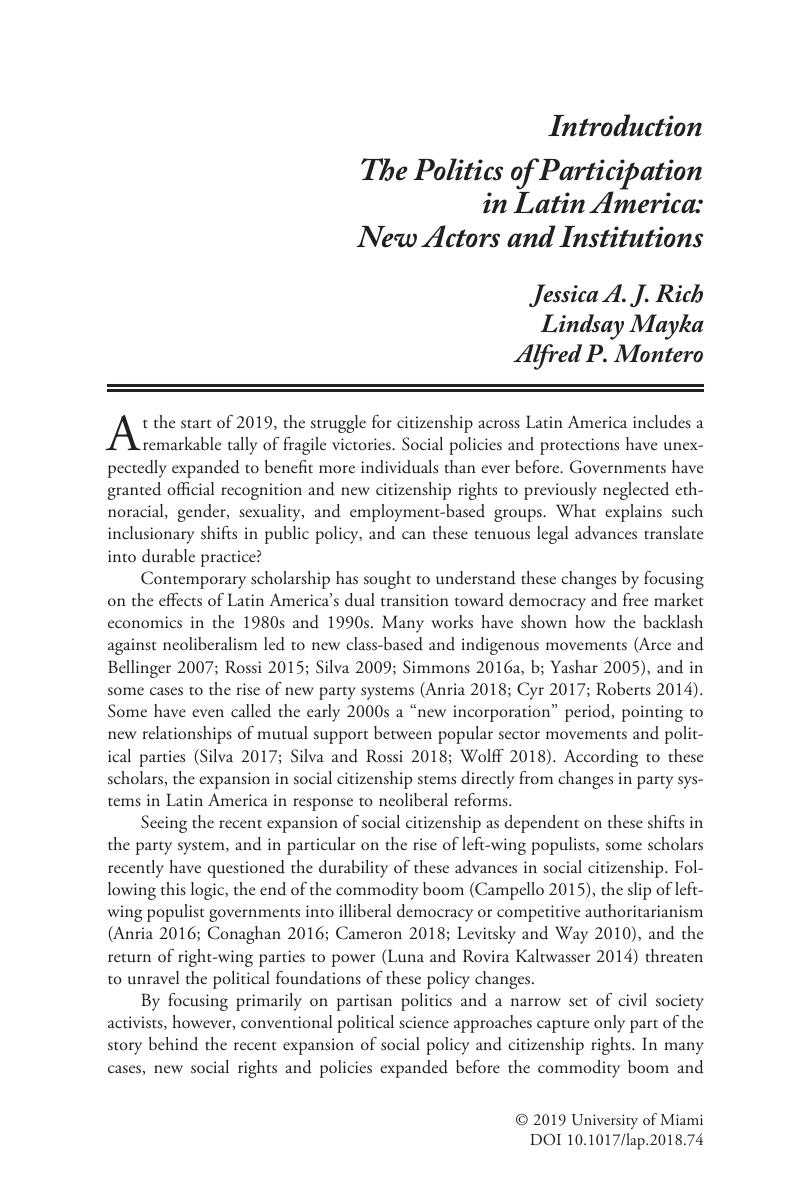Crossref Citations
This article has been cited by the following publications. This list is generated based on data provided by Crossref.
2019.
Building Participatory Institutions in Latin America.
p.
252.
2019.
Building Participatory Institutions in Latin America.
p.
183.
2019.
Building Participatory Institutions in Latin America.
p.
295.
2019.
Building Participatory Institutions in Latin America.
p.
37.
Mayka, Lindsay
2019.
Building Participatory Institutions in Latin America.
2019.
Building Participatory Institutions in Latin America.
p.
74.
2019.
Building Participatory Institutions in Latin America.
p.
140.
2019.
Building Participatory Institutions in Latin America.
p.
270.
2019.
Building Participatory Institutions in Latin America.
p.
98.
2019.
Building Participatory Institutions in Latin America.
p.
1.
2019.
Building Participatory Institutions in Latin America.
p.
222.
Donaghy, Maureen M.
2020.
Participation Meets Politics: Political Shifts and the Longevity of Participatory Governance Institutions.
PS: Political Science & Politics,
Vol. 53,
Issue. 1,
p.
6.
Mayka, Lindsay
and
Smith, Amy Erica
2021.
Introduction The Grassroots Right in Latin America: Patterns, Causes, and Consequences.
Latin American Politics and Society,
Vol. 63,
Issue. 3,
p.
1.
Irarrázaval, Felipe
and
Arias-Loyola, Martín
2021.
Resource Peripheries in the Global Economy.
p.
1.
Schweizer, Daniella
Meli, Paula
Brancalion, Pedro H.S.
and
Guariguata, Manuel R.
2021.
Implementing forest landscape restoration in Latin America: Stakeholder perceptions on legal frameworks.
Land Use Policy,
Vol. 104,
Issue. ,
p.
104244.
Holland, Alisha C.
and
Hummel, Calla
2022.
Informalities: An Index Approach to Informal Work and Its Consequences.
Latin American Politics and Society,
Vol. 64,
Issue. 2,
p.
1.
Grillos, Tara
2022.
Participation Improves Collective Decisions (When It Involves Deliberation): Experimental Evidence From Kenya.
British Journal of Political Science,
Vol. 52,
Issue. 4,
p.
1728.
Samford, Steven
2022.
Strength in Numbers or Collective Frailty? The Organizational Capacity of Microenterprises.
Sociology of Development,
Vol. 8,
Issue. 1,
p.
85.
DeShazo, Jessica L.
2022.
Going beyond the usual suspects: engaging street artists in policy design and implementation in Bogotá.
Policy Design and Practice,
Vol. 5,
Issue. 3,
p.
384.
Segura, María Soledad
and
Linares, Alejandro
2022.
Media Governance.
p.
205.



